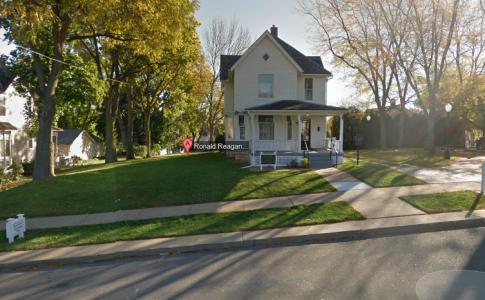Alvin D. Santiago, 30, on Thursday was sentenced to nine years in prison for shaking Tegan Greve so violently that she required brain surgery. The child was 2 months old at the time.
With day-for-day credit, Santiago will serve about four and a half years behind bars.
But for baby Tegan, it will be at least five more years of doctors visits, medical tests and medication. Even then, James Greve said, whether or not she’ll fully recover remains unknown.
“He got a lesser sentence than my daughter,” he said after an emotional sentencing hearing that included statements from he and wife, Rachel Greve, and tearful testimony from Santiago and his family members.
***
The article goes on to talk in more detail about the crime as well as the hearing in court. The part that catches my attention is the focus on the actual amount of time Santiago will spend in prison. It’s speculated to be around four and a half years.
I say “speculated” because nobody actually knows how long it will be at this point. It will likely be no less than 4.5 years and will absolutely be no more than 9 years. Essentially, actual prison time in Illinois gets computed as follows:
- Most cases are subject to some sort of reduction in time for “good behavior.” Some are not (like, for example, murder, where there is no good time allowance). The majority of felonies are “50% cases”, meaning that you may receive a reduction in your sentence up to 50% of the total time.
- Without getting too technical, it’s also possible to “earn” extra time off. Some of that extra time is “earned” without any effort- typically 6 months worth. You might also get an extra break for doing something like earning a G.E.D.
So, typically, its safe to say that on a “garden variety” felony, a person who takes a 5 year sentence will have a minimum sentence of 2 years (5 years multiplied by 50%, and then minus 6 months), and a person sentenced to 9 years will have a minimum sentence of 4.5 months.
Now you’re wondering why somebody could be out in 4.5 years for shaking a baby when they’re sentenced to 9 years? How is that justice, right? Especially when the reality is that the overwhelming majority of defendants serve the minimum.
Have you ever been inside a jail or prison? No? Have you ever seen an episode of “Locked up”?
If you have, you know that taking an entire population of “criminals” and keeping them from causing trouble isn’t easy. Some guy is throwing poop and clogging the toilet in the prison. What are you going to do, put him in segregation?
Fine. Now he’s painting the walls in segregation with poop, and 35 guys in the general population are protesting the first guy’s getting put “in the hole” by urinating on the floor. Plus, 6 guys got in a fist fight after somebody changed the TV channel in the middle of a great episode of Miami Vice.
What are you going to do now? Put them all in segregation? Sounds great, but you don’t have the space. The taxpayers want to be tough on crime, but don’t want to pay to be tough on crime- so you don’t have the facilities.
That’s where good time comes in. The facility has the option to yank some good time and effectively lengthen the sentence. There’s no judge, no jury and no defense attorney to get in the way (although there typically are some internal jail procedures). Go ahead… throw that poop. It’s going to cause you 8 more months of prison living. Is it worth it?
This is exactly what happened to Stevie Fielding. He got a sentence of 10 years and his jailhouse antics caused him to serve every last day.
Stevie Trailer from Steve James on Vimeo.
If reduced prison sentences are a way to give prisons the opportunity to keep peace and enforce prison policy, then why are most people only serving the minimum? Why aren’t more people losing good time?
Because the incentive system in prison generally works well. Being able to lengthen somebody’s prison sentence will typically keep them in line. The public might not like it, but it gets the job done.
There’s another reason why, too. Try following the money.
Like I already said, you want to lock people up, but you don’t want to pay for adequate facilities. There is a lot of pressure on the system to get folks “out” in order to make way for the others coming in. Plus, there are other enforcement tools- prisoners can lose all sorts of privileges.
So, why would a prison lengthen somebody’s sentence and make its financial situation even more dire when it may be able to achieve the same result by taking away a man’s Fritos and locking him in a room without a TV? It wouldn’t.
Judge Prather gave Alvin Santiago 9 years in prison today. He might serve 4.5. He might serve 9. It depends on whether or not he behaves himself, and whether or not you’re willing to put more money into a system you don’t want to put money into.
